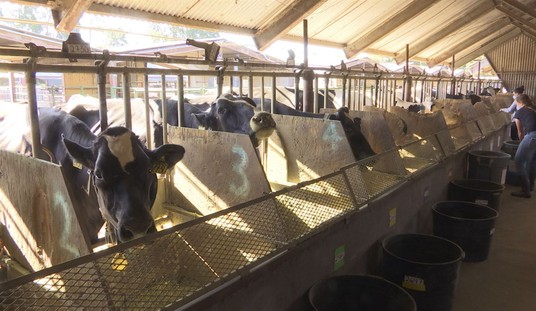National Economic Council Director Gary Cohn, former president of Goldman Sachs, said recently that "only morons pay the estate tax."
I'm reminded of Donald Trump's comment that he didn't pay federal income taxes because he was "smart." And billionaire Leona Helmsley's comment that "only the little people pay taxes."
What Cohn was getting at is how easy it is nowadays for the wealthy to pass their fortunes to their children tax-free. And therefore why no one should worry about getting rid of the estate tax, as Trump and Cohn plan to do.
Actually, there's good reason to go a step further by raising and expanding the estate tax.
Right now, the estate tax applies only to estates worth about $11 million per couple. Wealthy families stash money above this amount into "dynastic" trust funds that escape additional taxes.
No wonder revenues from the estate tax have been dropping for years, even as wealth has become concentrated in fewer hands. The tax now generates about $20 billion a year, which is less than 1 percent of federal revenues. And it applies to only about two out of every 1,000 people who die.
There's another part of the tax code that Cohn might also have been referring to, where revenues have been dropping -- capital gains taxes paid on wealthy people's stocks, bonds, mansions and works of art when they sell them.
If the wealthy hold on to these assets until they die, the tax code allows their heirs to inherit them without paying any of these capital gains taxes. According to the Congressional Budget Office, this loophole saves heirs $50 billion a year.
The estate and capital gains taxes were originally designed to prevent the growth of dynasties in the U.S. and to reduce inequality. They've been failing to do that. The richest one-tenth of 1 percent of Americans now owns almost as much wealth as the bottom 90 percent.
Recommended
Many of today's super-rich never did a day's work in their lives. Six out of the ten wealthiest Americans alive today are heirs to prominent fortunes. The Walmart heirs alone have more wealth than the bottom 42 percent of Americans combined.
Rich millennials will soon acquire much more of the nation's wealth.
America is now on the cusp of the largest inter-generational transfer of wealth in history. As wealthy baby boomers expire, an estimated $30 trillion will go to their children over the next three decades.
Those children will be able to live off of the income these assets generate and then leave the bulk of these assets -- which in the intervening years will have grown far more valuable -- to their own heirs, tax-free.
After a few generations of this, almost all of the nation's wealth will be in the hands of a few thousand families.
Dynastic wealth runs counter to the ideal of America as a meritocracy. It makes a mockery of the notions that people earn what they're worth in the market, and that economic gains should go to those who deserve them.
It puts economic power into the hands of a relatively small number of people who have never worked, but whose investment decisions will have a significant effect on the nation's future.
And it creates a self-perpetuating aristocracy that is antithetical to democracy.
The last time America faced anything comparable to the concentration of wealth we face now was at the turn of the last century.
Then, President Teddy Roosevelt warned that "a small class of enormously wealthy and economically powerful men, whose chief object is to hold and increase their power," could destroy American democracy.
Roosevelt's answer was to tax wealth. He advocated for the establishment of an estate tax. The modern U.S. estate tax was established in 1916, less than a decade after Roosevelt's presidency ended, and the capital gains tax was established in 1922.
But since then, both have been eroded. As the rich have accumulated greater wealth, they have also amassed more political power, and they've used that political power to reduce their taxes.
Roosevelt, a Republican, helped create a movement against dynastic wealth. Trump and today's congressional Republicans will not follow in his footsteps. I doubt even today's Democrats would do so if they had a chance. Big money has become too powerful on both sides of the aisle.
But taxing big wealth is necessary if we're ever to get our democracy back and make our economy work for everyone rather than for a privileged few.
If Cohn and his boss cared about America's future, they'd raises taxes on great wealth. Roosevelt's fear of an American aristocracy is more applicable today than ever before.

























Join the conversation as a VIP Member